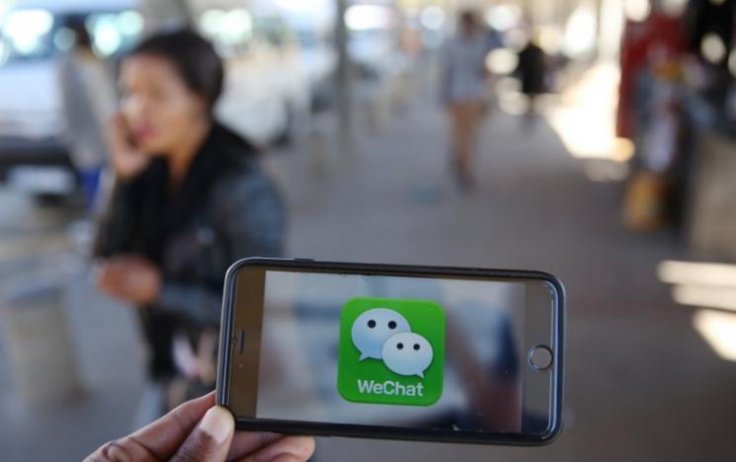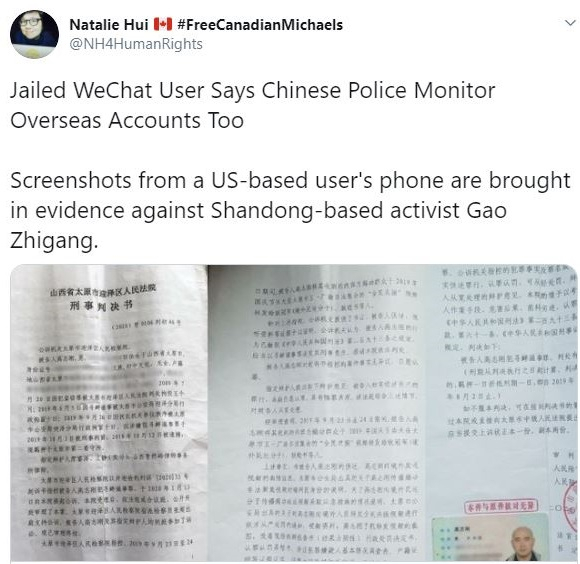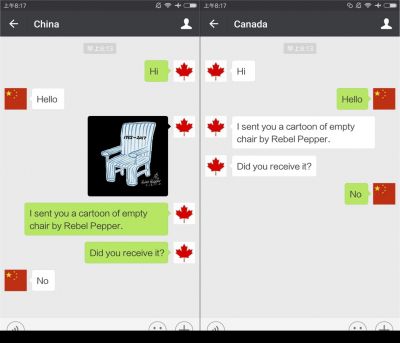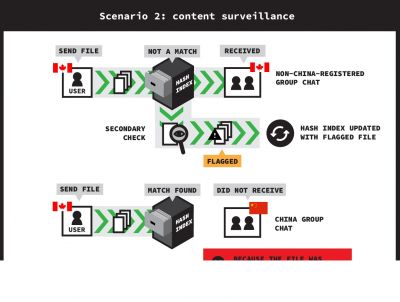Popular Chinese instant messaging app WeChat has been embroiled in controversy for allegedly sharing data with the Chinese government and also monitoring overseas users. While WeChat had denied the allegations, a user was jailed citing his chat history as evidence. And that can reveal if the company actually monitors users overseas on behalf of the Chinese Communist Party (CCP).
The Chinese citizen, Gao Zhigang, from Shandong was apprehended by local authorities on September 26, 2019, for contents he sent to a friend in the U.S. using WeChat. The contents contained a video clip that was considered "slander" by the government and he was taken into custody for "picking quarrels and stirring up trouble" in his home city of Taiyuan.

Backdoor
Gao served a 10-month sentence for "slander" of the government and public order. He was recently released. However, when he reviewed the evidence against him, he realized, it was not from his phone.
"The screenshots they provided weren't mine, because I had deleted everything after sending it. The recipient was also being monitored — by a different police station." Gao said, adding that authorities could get into WeChat through a "back door and target you."
The video clip was of a pro-democracy campaign called "Act Together". It was forwarded to a human-rights activist, Geng Guanjun, who lives in the U.S. The campaign involved activist Li Yiping calling Chinese people overseas to take the streets on May 1 demanding social justice.

But Geng told Radio Free Asia that he never clicked on the video and despite trying to reach Gao, his attempts were unsuccessful. He learned about his whereabouts only after he was released from jail.
"The content of the indictment confirms that the Cyberspace Administration and propaganda department in China are monitoring WeChat users," he told RFA. However, neither the district police department nor WeChat officials responded to RFA's queries.
Allegations Not new
The allegations against WeChat are not new. In May 2020, the University of Toronto's Citizen Lab in a report, titled, "We Chat, They Watch," claimed that WeChat used algorithms and a special team to monitor and censor contents shared on the platform that also included overseas users.
The researchers tried to send messages that contained information, considered sensitive in China. But those messages including video and images were never received by the targeted user. According to the researchers at Citizen Lab, WeChat uses keyword filters to tag a message deemed sensitive. Following that, the content is screened and put on a blacklist.




The app which has over 1.1 billion users worldwide has been banned in India since June 2020. In the U.S., through an executive order on August 6, President Donald Trump banned transactions in the U.S. for 45 days.
There were also reports that WeChat censored contents relating to Hong Kong protests and Beijing's abuse of Uighur Muslim minorities in China's Xinjiang province besides the Coronavirus pandemic.
However, WeChat, which is owned by the Chinese investor group Tencent, has denied allegations repeatedly. "WeChat does not store any user's chat logs, which is only stored in users' mobile phones, computers and other terminals. WeChat will not use any content from user chats for big data analysis," a statement from the company said. "Given that WeChat's technical model does not store or analyze user chats, the rumor that "we are watching your WeChat every day" is pure misunderstanding."
A former big data engineer at Huawei's Nanjing Research Institute, Jin Chun, recently revealed that Chinese law forces all the Chinese communication companies and internet providers to monitor and censor data on behalf of the CCP. If any company fails to do so or cannot respond to an official data request, it will cease to operate.









